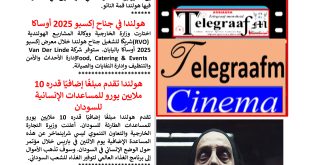The Organization Of The Islamic
Cooperation (OIC)
OIC FoundationThe Organization of the Islamic Cooperation (OIC) was founded under a decision taken during the historic summit of Rabat, Kingdom of Morocco, on September 25, 1969, in response to Al Aqsa Mosque fire in occupied Jerusalem. It is the second largest intergovernmental organization after the United Nations, with 47 member states from four continents. The Organization represents the collective voice of the Muslim world and seeks to protect and express its interests, in support of international peace and harmony and in consolidation of relations among the various peoples of the world.
OIC CharterThe Charter of the Organization of the Islamic Cooperation was adopted during the third session of the Islamic Summit in a meeting held in Jeddah in 1972 at the level of Foreign Ministers. It sets out the objectives, principles and fundamental objectives of the Organization, with the aim of promoting solidarity and cooperation among member states. After more than four decades since its inception, the number of OIC member states went up from the initial 30 founder states to 57 members at present. The Charter has been amended later to keep pace with global developments.
OIC ProgrammeThe OIC programme is anchored in the provisions of its Charter and focuses on 18 priority areas with 107 goals. The priority areas include issues of peace and security, Palestine and Al-Quds, poverty alleviation, counter-terrorism, investment and finance, food security, science and technology, climate change and sustainability, moderation, culture and interfaith harmony, empowerment of women, joint Islamic humanitarian action, human rights and good governance, among others.
OIC Key BodiesThe Islamic Summit, the Council of Foreign Ministers (CFM), the General Secretariat, in addition to the Al-Quds Committee and three permanent committees concerned with science and technology, economy and trade and information and culture.
There are also specialized organs operating under OIC including the Islamic Development Bank and the Islamic Educational, Scientific and Cultural Organization as well as subsidiary and affiliate organs that play a vital complementary role in boosting cooperation in various fields.
منظمة التعاون الإسلامي
أنشئت منظمة التعاون الإسلامي بقرار صادر عن القمة التاريخية التي عُقدت في الرباط بالمملكة المغربية في 25 من سبتمبر 1969 ردًا على جريمة إحراق المسجد الأقصى في القدس المحتلة. وتٌعد المنظمة ثاني أكبر منظمة حكومية دولية بعد الأمم المتحدة، حيث تضم في عضويتها سبعًا وخمسين دولة موزعة على أربع قارات. وتُمثل المنظمة الصوت الجماعي للعالم الإسلامي وتسعى لحماية مصالحه والتعبير عنها دعماً للسلم والانسجام الدوليين وتعزيزاً للعلاقات بين مختلف شعوب العالم.
عُقد في عام 1970 أول مؤتمر إسلامي لوزراء الخارجية في جدة بالمملكة العربية السعودية، وقرر إنشاء أمانة عامة يكون مقرها جدة ويرأسها أمين عام للمنظمة.
ميثاق منظمة التعاون الإسلاميجرى اعتماد ميثاق منظمة التعاون الإسلامي في الدورة الثالثة للمؤتمر الإسلامي لوزراء الخارجية في عام 1972. ووضع الميثاق أهداف المنظمة ومبادئها وغاياتها الأساسية المتمثلة بتعزيز التضامن والتعاون بين الدول الأعضاء. وارتفع عدد الأعضاء خلال ما يزيد عن أربعة عقود بعد إنشاء المنظمة من ثلاثين دولة، وهو عدد الأعضاء المؤسسين، ليبلغ سبعًا وخمسين دولة عضوًا في الوقت الحالي. وتم تعديل ميثاق المنظمة لاحقًا لمواكبة التطورات العالمية.
برنامج عمل المنظمةيستند برنامج عمل المنظمة إلى أحكام ميثاق منظمة التعاون الإسلامي، ويتضمن 18 مجالاً من المجالات ذات الأولوية و107 هدفا. وتشمل هذه المجالاتُ قضايا السلم والأمن، وفلسطين والقدس الشريف، والتخفيف من حدة الفقر، ومكافحة الإرهاب، والاستثمار وتمويل المشاريع، والأمن الغذائي، والعلوم والتكنولوجيا، وتغيّر المناخ، والتنمية المستدامة، والوسطية، والثقافة والتناغم بين الأديان، وتمكين المرأة، والعمل الإسلامي المشترك في المجال الإنساني، وحقوق الإنسان والحكم الرشيد وغيرها.
أجهزة المنظمةالقمة الإسلامية، ومجلس وزراء الخارجية، والأمانة العامة، بالإضافة إلى لجنة القدس وثلاث لجان دائمة تُعنى بالعلوم والتكنولوجيا، والاقتصاد والتجارة، والإعلام والثقافة. وهناك أيضاً مؤسسات متخصصة تعمل تحت لواء المنظمة، ومنها البنك الإسلامي للتنمية، والمنظمة الإسلامية للتربية والعلوم والثقافة (الإيسيسكو). وتؤدي الأجهزة المتفرعة والمؤسسات المنتمية التابعة لمنظمة التعاون الإسلامي أيضاً دوراً حيوياً وتكميليا من خلال العمل في شتى المجالات.
 TelegraafM موقع إلكتروني إخباري يصدر من أمستردام
TelegraafM موقع إلكتروني إخباري يصدر من أمستردام



